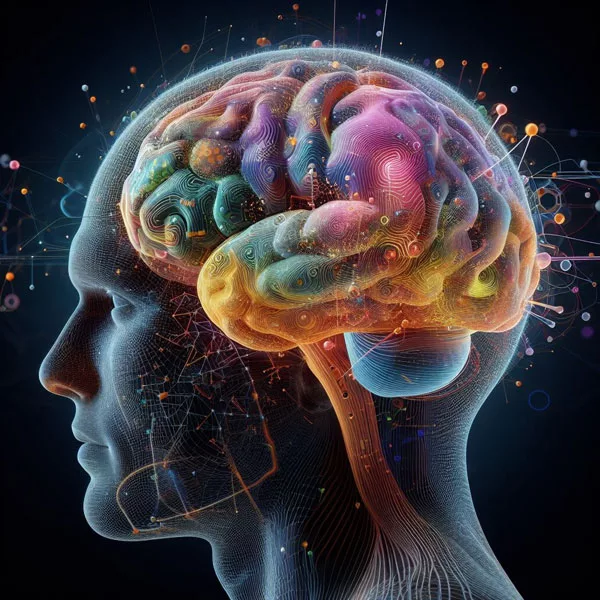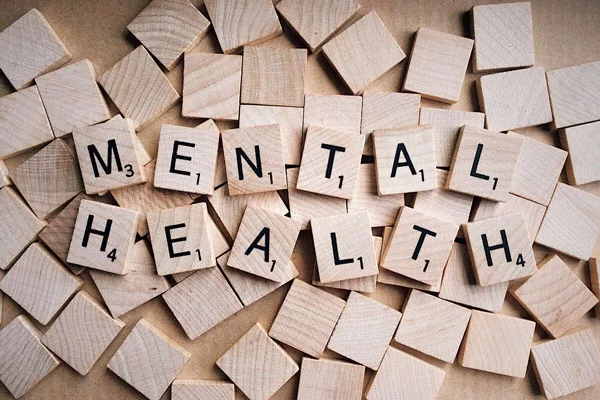The Marvel of Cognitive Function: Keeping the Brain Sharp in Retirement
- Introduction
- What is Cognitive Function
- The Many Faces of Cognitive Function
- Why is Cognitive Function So Important?
- Cognitive Function Disorder: What You Need to Know
- Testing Your Cognitive Abilities
- The MBTI Connection
- Boost Your Brainpower: Tips to Improve Cognitive Function
- Conclusion
- Frequently Asked Questions
Introduction
Ever had one of those days where you spent 10 minutes looking for your glasses only to find out they were on your head the whole time? That’s a classic senior moment – these little lapses are common and harmless. We’ve all been there. As funny as these moments are, they also highlight the importance of our cognitive function, especially in retirement. Let’s get into the world of cognitive function and understand why it’s so important, especially for retirees.
What is Cognitive Function?
Cognitive function is the mental process that allows us to do tasks, make decisions and interact with our environment. Cognitive function is the communication between brain cells that enables us to do mental tasks. It includes a range of abilities from memory and attention to problem solving and language skills. In psychology, cognitive function is often likened to the engine of a car, driving all our mental processes and helping us navigate life.
The Many Faces of Cognitive Function
Cognitive function isn’t just one ability; it’s a combination of several. Here are the 5 main cognitive functions:
- Memory: The ability to store and retrieve information. Think of those fond memories with your grandkids or remembering the name of a movie you watched last week.
- Attention: The ability to focus on specific tasks or stimuli. Ever tried to read a book in a noisy cafe? That’s your attention at work.
- Language: Our ability to understand and produce speech. It’s the reason you can have deep conversations with friends or order your favorite dish at a restaurant.
- Executive Function: This involves planning, organizing and executing tasks. Planning a family vacation or organizing a surprise birthday party? Thank your executive function.
- Perception: The process of recognizing and interpreting sensory stimuli. It’s the reason you can enjoy the smell of freshly baked cookies or the sound of rain on a tin roof.These 5 abilities are the main brain functions that work together to support daily life.
Why is Cognitive Function So Important?
Cognitive function is key to our daily lives. It’s the backbone of our decision making process, from what to wear to what to invest in. For retirees, maintaining cognitive function means maintaining independence. Strong cognitive function allows retirees to do daily activities like cooking, managing appointments and personal care. It allows seniors to manage their finances, remember medications and even socialize, to live life to the fullest.
Cognitive Function Disorder: What You Need to Know?
As we age, it’s normal for cognitive function to decline slightly. Minor cognitive changes like occasional forgetfulness or slower processing speed are normal changes and are considered normal. But these normal changes are different from more serious conditions like dementia which is significant and progressive decline. Significant decline can be a sign of cognitive function disorder. These disorders can range from mild cognitive impairment to more severe conditions like Alzheimer’s disease or dementia. Common signs are forgetfulness, difficulty following conversations or struggling with familiar tasks.
Testing Your Cognitive Abilities
Have you ever felt concerned about your cognitive ? You’re not alone. Many opt for cognitive function tests to gauge their cognitive abilities. These tests measure your mental faculties and can be helpful in early detection of potential issues. Research shows that these assessments are proven to be effective tools in identifying cognitive decline early. They can be simple pen-and-paper tests to more comprehensive computer based assessments.
The MBTI Connection
For the personality enthusiasts out there, you might be familiar with the Myers-Briggs Type Indicator (MBTI). This personality assessment tool also looks into cognitive functions, to see how different personalities process information and make decisions. Understanding your MBTI can give you valuable insights into your cognitive strengths and areas for improvement.
Boost Your Brainpower: Tips to Improve Cognitive Function
The good news is cognitive decline isn’t inevitable. Here are ways to boost your cognitive function:
- Be Active: Physical activity including regular physical exercise such as moderate aerobic activity, brisk walking, swimming or cycling is essential for cognitive health. Being active increases heart rate, improves blood flow to the brain and supports healthy blood pressure all of which benefits brain function. The Department of Health and Human Services and other human services agencies recommend adults to do at least 150 minutes of moderate aerobic activity per week to prevent cognitive decline and slow down cognitive decline especially in older adults.
- Mental Stimulation: Engage in mentally challenging activities that keep your mind active and build cognitive reserve such as crossword puzzles, learning a musical instrument or starting a new hobby. These activities keep you mentally active, sharp and can prevent memory loss and memory problems.
- Socialize: Regular social interaction with friends, family and loved ones is vital for mental sharpness. Social interaction wards off depression and anxiety, reduces the risk of memory loss and supports emotional well-being. Staying socially engaged can prevent cognitive decline and slow down memory problems.
- Diet: Following a Mediterranean diet which emphasizes plant-based foods, fish and healthy fats like olive oil has been shown to support brain function and reduce the risk of cognitive decline and memory loss especially in older adults. These foods are rich in omega-3 fatty acids, antioxidants and vitamins that are good for brain health.
- Sleep: Getting enough sleep each night is crucial for memory consolidation and overall brain health. Poor sleep or sleep disorders like sleep apnea can increase the risk of memory problems and cognitive decline. Aim for 7-9 hours of quality sleep per night and consult a healthcare provider if you experience persistent sleep issues.
- Alcohol and Moderate Drinking: Limit alcohol intake and practice moderate drinking as excessive alcohol consumption can increase the risk of high blood pressure and cognitive decline. Moderation is key to protecting both cardiovascular and brain health.
- Mental Health: Managing depression and anxiety is important for cognitive health. Effective treatment for these conditions can improve mood, reduce symptoms and help maintain mental sharpness.
Try these out and slow down cognitive decline, prevent memory problems and stay mentally sharp for life.
Conclusion
Understanding and maintaining cognitive function is like keeping a car running smoothly. It’s the engine that drives our daily lives especially in retirement. So the next time you forget where you placed your glasses take a moment to appreciate the wonder that is your brain. And remember it’s never too late to start taking steps to boost your cognitive health.
Frequently Asked Questions
What is cognitive function?
Cognitive function refers to a range of mental processes that allow us to do tasks, make decisions and interact with our environment. It includes abilities like memory, attention, problem-solving and language skills.
How does aging affect cognitive function?
As we age we experience cognitive changes many of which are normal changes associated with getting older. While it’s natural for cognitive function to decline slightly with age, significant declines can be a sign of cognitive function disorders. But many seniors remain sharp and mentally fit well into their golden years with the right lifestyle choices.
Are there exercises to improve cognitive function?
Yes, activities that challenge the brain can help. This includes mentally challenging activities such as puzzles, reading, learning a new skill or language and even certain computer games designed for cognitive enhancement.
How does diet affect cognitive health?
Diet plays a big role. For example the Mediterranean diet which emphasizes plant-based foods, healthy fats like olive oil and fish has been shown to support brain function and reduce the risk of cognitive decline. Foods rich in omega-3 fatty acids, antioxidants and certain vitamins like B12 and D also support brain health. A balanced diet with plenty of fruits, vegetables, lean proteins and whole grains is good.
Can medications affect cognitive function?
Some medications can affect cognitive function either positively or negatively. It’s important to discuss any concerns with a healthcare provider and review medications regularly.
What’s the difference between cognitive function and intelligence?
While they’re related they’re not the same. Cognitive function refers to the processes our brains use to think, read, learn, remember, reason and pay attention. Intelligence on the other hand refers to one’s ability to learn from experiences and adapt to new situations.
How do I know if I or a loved one is experiencing significant cognitive decline?
Symptoms such as memory loss and memory problems can include frequent forgetfulness, difficulty following conversations, struggling with familiar tasks or getting confused easily. If you or your loved ones notice these or other concerning symptoms see a healthcare provider.
Is it ever too late to start improving cognitive function?
Never! While starting earlier can have preventative benefits making positive changes at any age can bring improvements, enhance quality of life and prevent cognitive decline.
How does physical activity affect cognitive health?
Physical exercise such as moderate aerobic activity – including brisk walking, swimming or cycling – increases blood flow to the entire body including the brain which can help boost cognitive functions. Engaging in these activities helps regulate blood pressure and increase heart rate both of which support brain health and reduce the risk of cognitive decline. According to the Department of Health and Human Services adults should aim for at least 150 minutes of moderate aerobic activity per week to promote overall health and cognitive function. Exercise also releases endorphins which can improve mood and reduce stress further benefiting cognitive health.
Are there any natural supplements for cognitive health?
Some studies suggest that supplements like omega-3 fatty acids, ginkgo biloba and certain B vitamins may support cognitive health. But always consult with a healthcare provider before starting any new supplement regimen.








5 Comments
Comments are closed.